- Home
- Jason Pinter
The Stolen Page 6
The Stolen Read online
Page 6
“But if the numbers are inflated,” I said, “who cares?”
“Advertisers,” Wallace said. “Not to mention subjects who, unlike Shelly Linwood, truly care about maximizing their publicity. If our top writer goes into the detox, it’s one less leg for us to stand on, one more piece of ammo for Paulina’s slime cannon.”
“I’ll ease off with Jack,” I said. “I need to cut back on my own extracurriculars as it is.”
“Glad to hear you say that, Henry. Don’t think I’m unaware that you seemed to have mistakenly thought your desk came from 1-800-MATTRESS. Speaking of social lives, how’s that girlfriend of yours? Amanda, right?”
I toed the floor. Looked away.
“We aren’t seeing each other anymore,” I said. “Haven’t talked in a while, actually.”
“That’s a shame. Remember you talking about her from time to time. In a good way.”
She was worth talking about, I wanted to say. Instead, I let my silence speak for me. It was an issue I couldn’t talk about with Wallace. Or Jack. Or anyone. I wasn’t fully ready to face it myself. Knowing the woman I loved was out there in the same city walking the same streets, it was enough to tear me apart if I thought about it too much. Knowing what I’d let—what I’d forced away.
“Not to get too parental, but you’ll meet someone nice,” Wallace said. “All these bylines, your name in the paper, lots of girls would probably kill to go out with a hotshot journalist.”
“Yeah, nothing sexier than a guy with half a dozen cartons of half-eaten Chinese food, who makes less money than a public school teacher and doesn’t own a mattress cover.”
I could tell Wallace didn’t find that funny. I decided to change the subject.
“Hey, know who showed up at the Linwoods’ place today? Gray Talbot.”
“No kidding?”
“In the flesh. Or suit.”
“The savior of suburbia checking on his constituents.”
“What do you mean, savior?”
“After Daniel Linwood disappeared, Gray Talbot came in and rattled the cage until someone changed the lining. Made a big stink about how the town was becoming a cesspool, how the crime rate was simply unacceptable. He got state and federal funding to rebuild Hobbs County pretty much from the ground up. Nearly doubled the police force, turned a hellhole of a town into a damn fine place to raise a family. There’s still work to be done, but that place is pretty unrecognizable compared to what it was.”
I thought about what Wallace said, and agreed with him. Even Stavros, the driver, had said the same thing.
“Daniel Linwood’s kidnapping was a terrible thing, but the silver lining is he forced change,” he continued. “That boy basically returned to a brand-new, safer home and community. That’s all Gray Talbot. Rumor has it he contributed close to a million from his own coffers to aid the effort.”
“I thought his suits looked nice. Guess he’s got enough money for them.”
“I have Gray’s home phone number. It’d be great to get him on record for this story as well. He’s got a lot invested in Hobbs County, both in time and money, and I’m sure he’s expecting a heck of a story from you as well. You don’t construct a house and then not care how it’s decorated. Get to it,” Wallace said. “All story, all the time. I want to see ink on your eyeballs. If I hear you had a single drink with Jack, you’ll be reporting on the passing of venereal diseases in the champagne room. Show me the copy before you send it to Evelyn.”
“No problem,” I said.
“Then tomorrow morning, I’ll send over a copy of the paper with a fruit basket to Ted Allen and Paulina Cole.”
“Do me a favor, leave my name off the card,’ I said. “Enough people in this town hate me.”
“If they hate you it’s because you’re doing a good job. You’re getting the scoops they want. So go make some enemies. Just make sure they’re the right enemies.”
“Operation Piss People Off to commence immediately, sir.”
I gave Wallace a halfhearted salute and returned to my desk. I sent Jack a quick e-mail declining drinks.
I pushed all that aside and got to work. Punching keys. Making enemies of the right people. Something still didn’t sit right with me about the interview. I needed to pinpoint it. To do justice to the story. To give justice to Danny Linwood.
6
“It’s called ‘declared dead in absentia,’” Amanda said. “It’s when a person is presumed dead, yet there is insufficient evidence to prove such a death occurred.”
Darcy Lapore chewed her gum thoughtfully. At least Amanda assumed it was thoughtful, because her brows were furrowed as if creating space for a gopher to hibernate. Regardless, she continued. Amanda Davies had been working at the New York Legal Aid Society for several years. In that time, she’d witnessed some of the most horrific cases of neglect and abuse. And she’d seen children taken from the depths of hell and given hope. Yet, as she sat there with Darcy Lapore, Amanda couldn’t recall ever working on a case as bizarre as that of Daniel Linwood.
“However, if a person has either been missing for a significant amount of time—for adults it’s usually seven years—or has disappeared under unusual circumstances, the death certificate can be sped up. It’s a way to both give the family some closure, and to make sure they get any benefits they’re entitled to, like life insurance.”
“So…the Linwoods have been collecting their son’s life insurance?” Darcy asked. Amanda mentally slapped her head, then for fun mentally slapped Darcy’s head. Then she reminded herself that no matter how often she wanted to strangle the stupid out of the girl, she couldn’t get mad at Darcy. Kind of the same way you couldn’t really be upset with a puppy who peed on the rug. Though most puppies did eventually learn to hold their bladders, Amanda did wonder whether Darcy would ever really commit to the job. The girl meant well, but for some reason her ability to recall thousands of shades of lip gloss and memorize every designer from Betsey Johnson to Umbro outweighed her ability to retain legal aid information by a multiple of, oh, about a trillion. The children they worked with needed passionate advocates.
“Daniel didn’t have life insurance,” Amanda continued, not letting an ounce of condescension drip into her voice. While Darcy would never win employee-of-the-month—or day, or even minute—in addition to being a colleague, she’d been a better friend than most people Amanda had ever known.
Last year, when Henry ended their relationship, when Amanda had no place to sleep, Darcy opened up her home and her sofa bed without thinking twice. Darcy’s husband, Nick, moaned for a millisecond, but apparently Darcy gave him a look that first night and Nick never peeped again. Amanda knew Nick brought home a salary closer to seven figures than six, so Darcy didn’t need nonprofit work, or any kind of work for that matter. Nick didn’t get home most nights until midnight, if not later, so if her generosity was for companionship Amanda didn’t know, but she was thankful for it, nonetheless. Which meant forgiving occasional, scratch that, regular lapses in judgment.
“You know, you should have come out last night,” Darcy said. “They gave out gift bags at the end. Each one had a tube of La Mer. I swear it’s like rubbing liquid silk on your skin. And Nick’s friend Spencer, remember the one I told you about? He was there, and honey, that boy can wear a Brooks Brothers.”
“I’m sorry, Darce, I was tired. I’ll be there next time.”
“Wow,” Darcy said sardonically. “If there ever is a next time, you’ll have to clone yourself, like, fifty times to make up for all your excuses.”
Amanda turned to her, said, “I’m sorry, it’s just…it’s not me. I don’t get all giggly for that kind of stuff. If I’m going to meet someone, it’ll happen the way it’s meant to happen. Like…”
“Like a fugitive asking for a ride out of the state.”
She smiled. “Yeah. Something like that.”
“Well, fine. I’ll tell Nick to tell Spencer to find another playmate. But, Amanda?”
“
Yeah?”
“Next time you might want to come just for the moisturizer. Your dry-as-dust forehead will thank you.”
Amanda shut her gaping mouth, then play-slapped Darcy. She never wanted to be rude, and surely appreciated the effort, but she wasn’t a socialite, the kind of woman who spent more time getting dressed than she did sleeping. And that’s what she missed most about Henry. Those nights where it was just the two of them, cuddled in sweats and T-shirts, relaxing on his couch, watching a funny movie, talking, making love, then falling asleep. Bodies intertwined as though there was no world other than theirs. And for a while, there wasn’t. Then the world decided to have some fun at their expense, and dispatched a killer into their midst. And while they survived, their relationship died horribly. And now Amanda’s nights were spent full of sorrow for her loss, guilt for imposing on Darcy, and desire to just move on and forget everything.
“Hey, Amanda, you see this?” Levi Gold, one of the NYLAS’s partners, came into their office waving a copy of that morning’s New York Gazette. He laid it on the table in front of Amanda and Darcy, then underlined the headline with his finger.
“I Just Want To Be a Kid”
Long thought dead, Daniel Linwood grasps for the life nearly taken from him
by Henry Parker
“That’s our guy, Daniel Linwood,” Levi said. Levi was a short man, yet always walked with his shoulders rolled back as though it might add an extra few inches. His balding pate was neatly combed over, his gold wedding ring always buffed to a polish. As he leaned in close, Amanda could smell a whiff of Hugo Boss. And though she’d never tell him, she’d once spied him inserting lifts into his loafers.
“Whaddaya think, we’re handling this city’s top legal aid case. Pretty sweet, huh? If my bonus doesn’t hit four figures this year, I’ll be seriously pissed.”
Darcy was out of her seat ready to give Levi a hug, but Amanda couldn’t stop staring at the byline. She hadn’t spoken to him in months. Hadn’t read the Gazette since they broke up. Suddenly Amanda grabbed the paper, opened it to Henry’s article and began reading.
When Darcy saw the story’s continuation, saw the Gazette’s emblem atop the margin, noticed the byline, it dawned on her.
“Oh, babe,” she said. “You don’t need to read this.”
“I want to.”
“Really, Manda…” She moved to take the paper.
“If you touch it you’ll be wearing your wedding band on a stump.”
Darcy withdrew, protectively holding her hand.
Amanda read the whole story in silence. When she was finished, she closed the paper and handed it back to Levi.
“Sorry for hoarding your paper.”
“Don’t worry about it. Least some of the newsprint rubbed off on you instead of me.” Levi smiled and walked out.
“Does it still hurt?” Darcy asked. Amanda could tell along with the sympathy there was a note of curiosity in Darcy’s voice. She’d never been hurt like that, never had to see an ex-lover’s name in front of her. She was the kind of girl men fawned over, men who would never hurt her, because her beauty was what they craved, and they knew she could walk away in an instant. If she left, another man just like them would be waiting around the corner to scoop her up. Amanda never had that luxury. She’d always told herself once she found the right man, she would never let him go. She never wondered what it would be like if he left her. Never wondered if he was simply carrying on his life while she cried herself to sleep.
“It hurts,” Amanda said. Then she turned to Darcy. “Hurts more today than usual.”
“Come on,” she said, standing up. “Lychee martinis at lunch today. On me. And afterward we’ll work on bringing young Mr. Linwood back to life.”
For once, Amanda was more than happy to indulge Darcy.
7
I arrived at my desk to find Jack O’Donnell waiting for me. Sitting in my chair, in fact. He was wearing a brown suitcoat and gray slacks with several patches sewn in. In fact, during the few years I’d gotten to know him, Jack had shown as much taste for fashion as your average wino. Pants are pants, he told me one night over a beer. Just because they rip doesn’t mean they stop being comfortable. You have any idea how much money I’ve saved over the years by giving my money to tailors instead of garment salesmen?
The look on his face read “mildly perturbed.” His posture said, “I’m sitting in your chair. So what?”
Big red veins tubed down the sides of his nose. His eyes were mildly bloodshot, and it was clear though I’d declined his drinking invitation last night, he’d hit the town with his more reliable friend Jack Daniel’s, maybe met up with their buddy Jim Beam and set sail on a voyage with Captain Morgan as well.
Jack was holding a copy of that morning’s edition of the Gazette, the front page held up and turned my way so I could see it. He slapped it with his hand and said, “Knocked it out of the park, Henry. Of course you know I plan to take full credit for this. I’ve already told the whole newsroom you couldn’t find an acorn in a squirrel’s paw without my help.”
“And just when people were starting to respect me,” I said. “You think this will convince Rourke to hold off making another shit bag?”
Last year, the Gazette’s sports editor, a rough-and-tumble jackass named Frank Rourke, decided it would be funny to leave a paper bag full of shit on my desk. Apparently this was the highlight of the week for a lot of journos. And a month later Jack forwarded me the Photoshop image of my face superimposed onto that of a dog taking a big, steaming poop. That’s when I became convinced that the more literate some people are, the more puerile their sense of humor was.
“You should be proud, Henry. Big interview like that, not to mention the sensitive subject matter, you could have had all the media watchdogs all over you if you’d messed up. You want people talking about the story itself before the quality of the coverage. Best kind of press for a reporter is no press.”
“That’s a trick I haven’t quite mastered yet,” I said.
“It’ll come,” Jack offered. “You have the brains and the talent. Just keep doing what you were born to do and the rest will come.”
“It felt good to be in there,” I said.
“I bet,” Jack said, and I knew he must have written a million stories like it. “Good mixture of fastballs and softballs. Nobody wanted you to give the Linwood kid the third degree, but there are a lot of unanswered questions.”
“That’s one thing that’s strange. All those questions, and yet I’m the only one asking them.”
“What do you mean?”
“This Linwood story, it’s really just incredible. I mean, this family, the Linwoods, it’s like the sun has finally come out after a thousand years of darkness. Now they just want to move on with their lives, let Danny be a kid again. But nobody knows where he went, who took him, and why he can’t remember a thing before the day he came back.”
“So you think he’ll, what, just be left alone now?” Jack said. “Uh-uh. Now’s when the vultures start circling. Long-lost relatives come out of the woodwork. An uncle somewhere who claims to be Daniel’s best friend even though he hasn’t seen the kid in years, wants some of the money folks donated. Some cousin will write a book about how Danny wasn’t such a good kid, maybe he picked his nose when he was a toddler and put gum in a girl’s hair. It’s sad how much money there is in the misery of others.”
I had to shake my head. I knew Jack was right, but after my interview I hoped the cops would pick up the slack, ask the really tough questions. Though Danny was technically a ten-year-old boy, he’d forever be known as the one who came back. Even strangers would hesitate a second, wondering where they knew his name from. And without that closure, the questions would never cease.
“You know, it’s funny,” I said. “All this commotion over Daniel returning, yet the cops have no leads and nobody really seems to be digging that hard. Even Shelly Linwood herself seemed unconcerned as to why the cops weren’t doing more.�
��
“When your dog runs away, then shows up an hour later, do you really care where it went? You’re just happy the thing’s back.”
“This isn’t a dog, Jack. It’s a child. Somebody took him and kept him for almost five years.”
“Yeah, somebody took him. And then either they got bored of him or he managed to get away. And the world keeps on spinning.”
“That’s your answer?”
“I don’t need to answer,” Jack said. “It’s not my kid, and it’s not my story.”
“You don’t think it’s weird that Danny doesn’t remember a minute of what happened? Or where he went?”
“Strange things occur every day in this world, sport. Just last Thursday I went to get a glass of iced tea, turned out the pitcher was empty. Now, I know I didn’t finish that sucker, but did I go questioning the neighbors? Nope. I went to the store, bought another jug.”
“I have no idea how this relates to an actual human being.”
“It’s hoopla, is what it is now,” Jack said. “You wrote a great piece, Henry. Move on.”
“Hoopla? They didn’t outlaw that word in, like, 1800?”
“Laugh it up, tiger. A family is back together. You want to give them closure? Right now, today, this is the most closure they’re probably ever going to get. You think people like Paulina Cole are going to stop calling? You don’t think there are people out there who know the juice that can be squeezed from this family is worth money? Just because you think you have scruples, son, doesn’t mean everyone else thinks that way.”
“Cop cars,” I said.
Jack looked puzzled. “Cop cars?”
“Danny Linwood told me that when he woke up, he heard police sirens, and that he saw a cop car pull up right where he’d been lying. I checked the newspapers and police reports from that day, and couldn’t find anything about any crimes reported in the vicinity of Doubleday Field.”

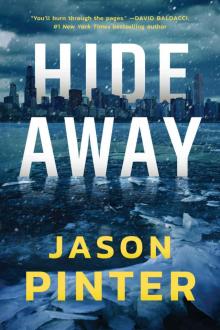 Hide Away (A Rachel Marin Thriller)
Hide Away (A Rachel Marin Thriller)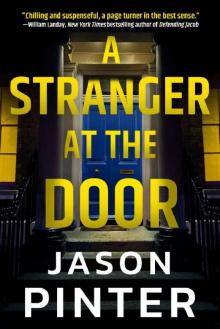 A Stranger at the Door (A Rachel Marin Thriller)
A Stranger at the Door (A Rachel Marin Thriller)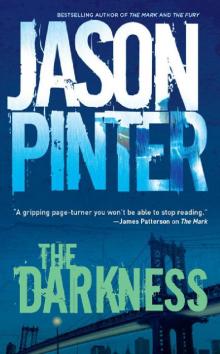 The Darkness hp-5
The Darkness hp-5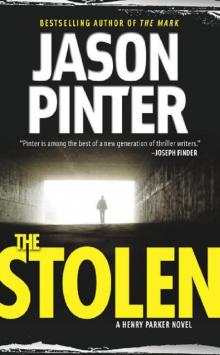 The Stolen hp-3
The Stolen hp-3 The Guilty hp-2
The Guilty hp-2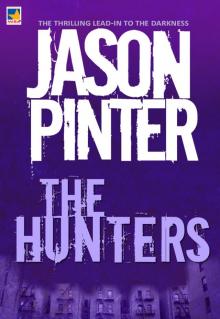 The Hunters
The Hunters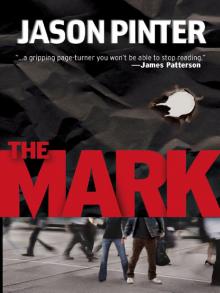 The Mark hp-1
The Mark hp-1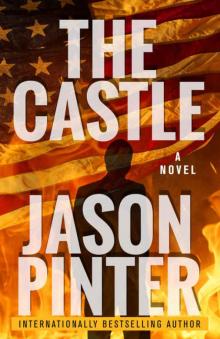 The Castle: A Ripped-From-The-Headlines Thriller
The Castle: A Ripped-From-The-Headlines Thriller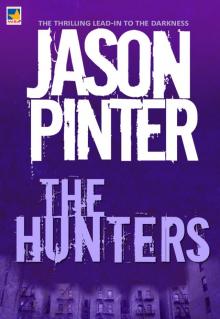 The Hunters (henry parker)
The Hunters (henry parker)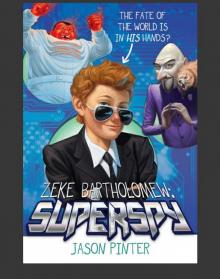 Zeke Bartholomew
Zeke Bartholomew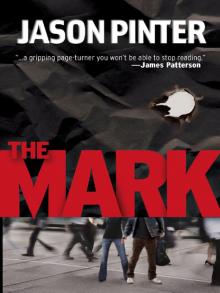 The Mark
The Mark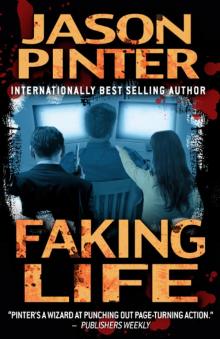 Faking Life
Faking Life![[Henry Parker 01.0] The Mark Read online](http://i1.bookreadfree.com/i2/04/08/henry_parker_01_0_the_mark_preview.jpg) [Henry Parker 01.0] The Mark
[Henry Parker 01.0] The Mark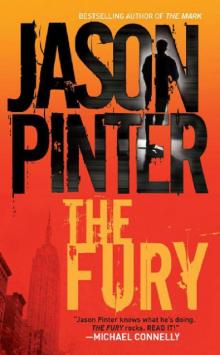 The Fury hp-4
The Fury hp-4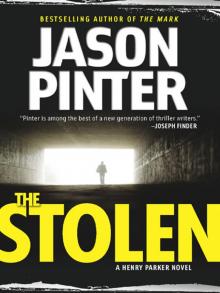 The Stolen
The Stolen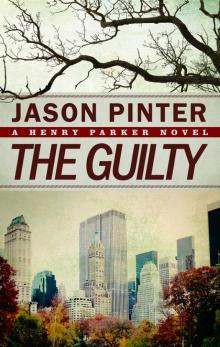 The Guilty
The Guilty